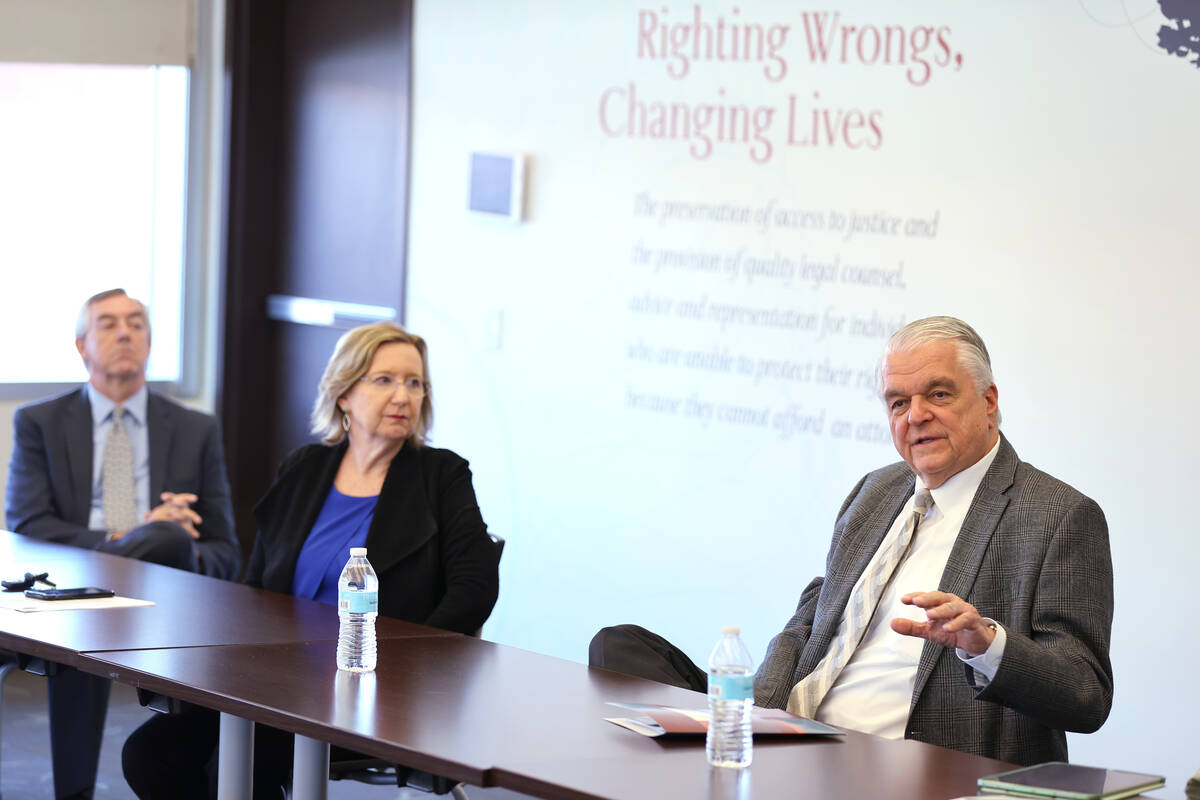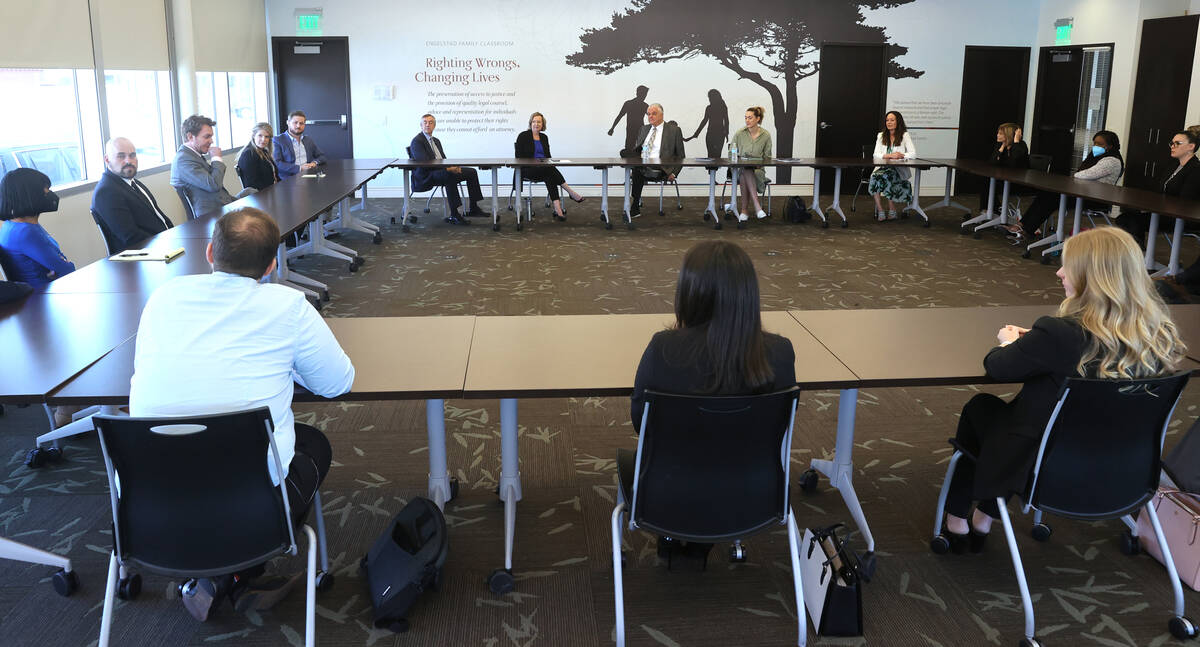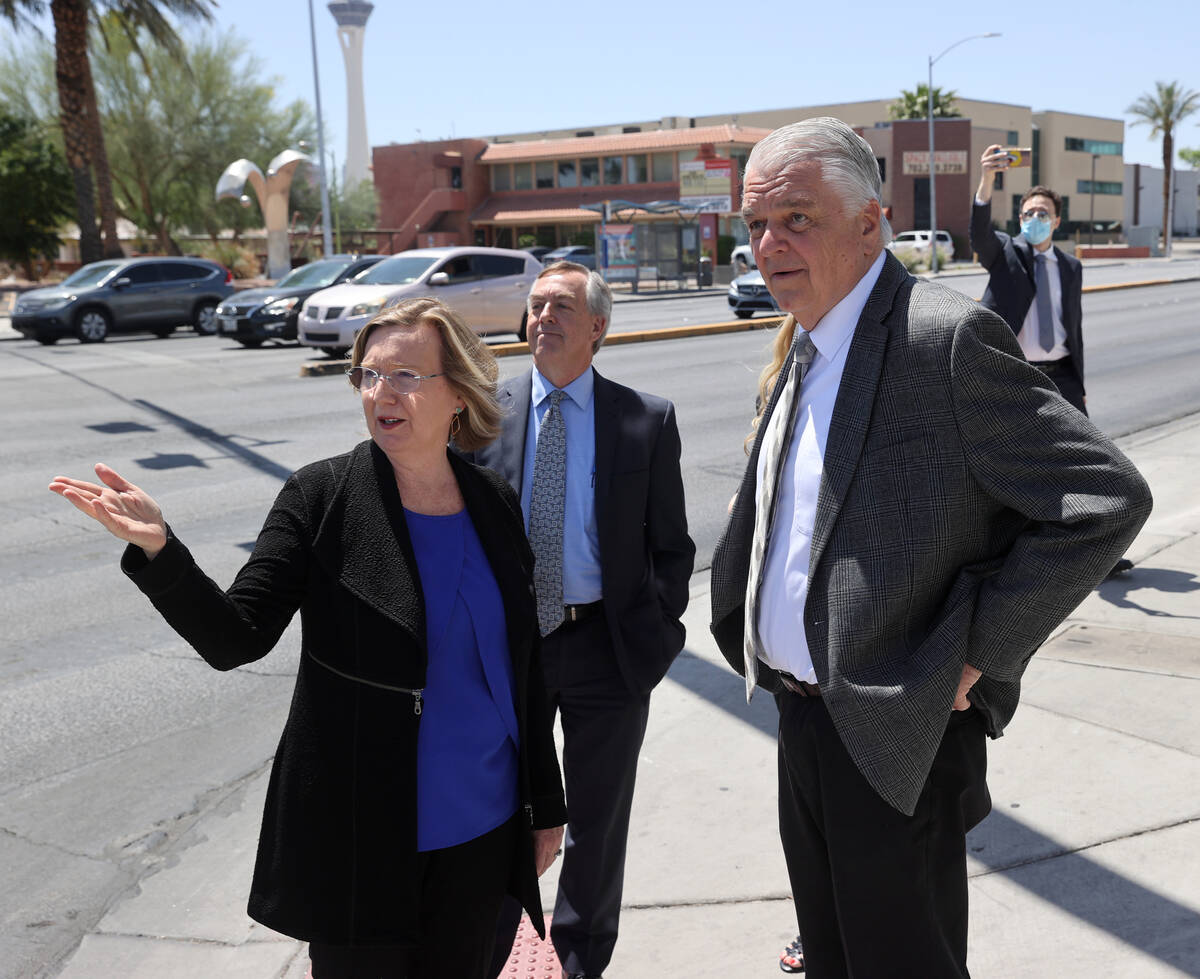Ensuring nonprofit program longevity important in awarding grants, Sisolak says
As aid begins to flow from state grant reserves to nonprofits, government officials must weigh the long-term success of the programs they support, Gov. Steve Sisolak said during an event at the Legal Aid Center of Southern Nevada.
The state recently awarded the legal services nonprofit a $2.6 million grant through the Community Recovery Grants program. The $30-million fund, supported by American Rescue Plan act dollars, is meant to support programs that provide educational, health, housing and other related services in Nevada.
Part of the vetting process is ensuring the longevity of the services provided through the grant, Sisolak said during the Wednesday roundtable discussion.
‘Can’t just look at need’
Sisolak said one of his concerns with grant-making is whether such awards can potentially create financial burdens for an organization or program once the funding runs out. One way to avoid that is to award grants to organizations that offer a plan for how it will continue the program after the grant dwindles.
“You can’t just look at the need, you’ve gotta look at the sustainability,” Sisolak said. “You can’t create a financial cliff for any of these where you get three or four years done. What happens in three years when we don’t have another ARP grant coming in? How are they going to continue that? Because you don’t want to set up a program and then eliminate the program. Then you do more damage than you do good.”
More than 330 organizations requested $445 million in funding, the state previously said. Now, the governor’s office is vetting applications before putting selected groups up for approval in the Interim Finance Committee. Eight grants have been awarded so far, totaling about $5.5 million. Recipients have programming in education, job training, infant care and mental health.
“A lot of the needs that were exposed during the pandemic, we really didn’t focus on enough prior to the pandemic and we didn’t plan enough,” Sisolak said. “You saw that with mental health, you saw that with medical providing services with nurses every day.”
Legal aid grant focuses on educational advocacy
Legal Aid Center’s grant will support its educational advocacy program, which offers legal advocacy for children with disabilities, particularly those in foster care, in educational settings. The grant funds two more attorneys and four advocates for the next four years. Administrators told Sisolak they planned to use more grants and private fundraising to continue the program once the grant runs out.
“We’re representing people whose lives have been wronged, who need help with legal advocacy,” Gillian Barjon, the program’s lead attorney, said. “Education, specifically education for children with disabilities, is a right and services for those children is a right.”
Advocates and attorneys will work with students to make their education equitable, such as working through issues with the child’s individualized education program that may list an incorrect disability or otherwise not be personalized correctly.
“There’s that point for kids with disabilities where they get labeled as a behavioral problem,” Jonathan Norman, a policy director for the Nevada Coalition of Legal Service Providers and a former education advocate, said. “If the IEP isn’t meeting their needs,if they don’t have an appropriate behavior intervention plan, if we don’t get it right they are on track to juvenile justice referrals and then we know where that leads us when they become adults – prison.”
McKenna Ross is a corps member with Report for America, a national service program that places journalists into local newsrooms. Contact her at mross@reviewjournal.com. Follow @mckenna_ross_ on Twitter.
























